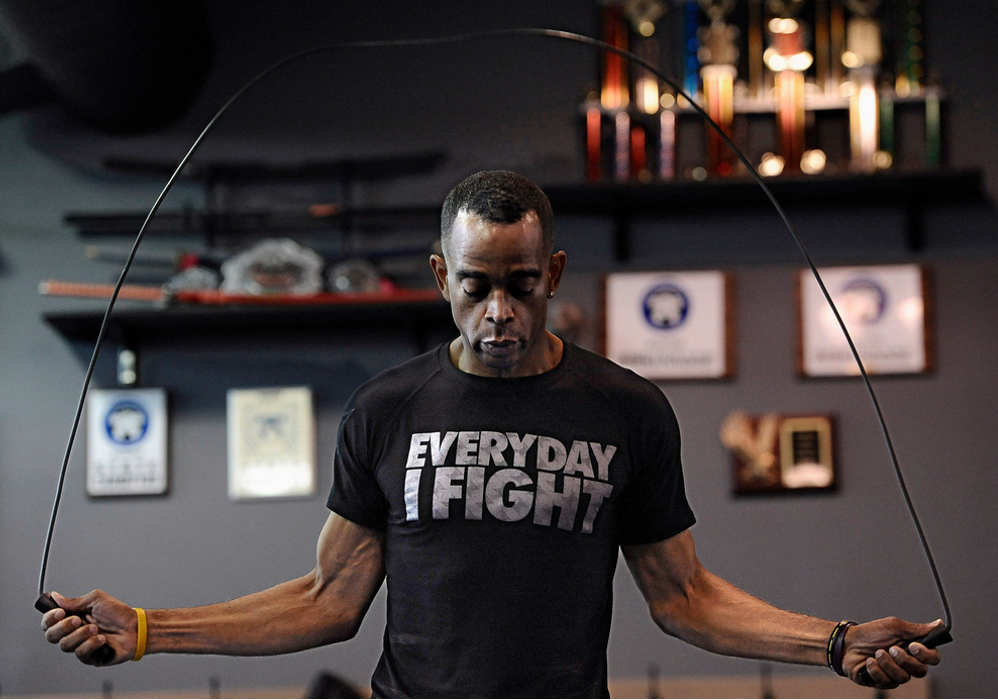I woke up to this headline, “ESPN’s Stuart Scott dies of cancer.” After watching the moving ESPN tribute, Chris, my fiancé, turns to me and says, “Are you afraid of death?” Stumped, I responded, “I don’t really think about it.” That was the best response I could muster up.
Of all the coverage and all the headlines, one quote stuck to me. It haunted me. It scared the shit out of me.
“When you die, that doesn’t mean you lose to cancer. You beat cancer by how you live, why you live and the manner in which you live. So live. Fight like hell, and when you get too tired to fight, lay down and rest and let someone else fight for you.”
Peacefully surrendering to death, yet his words have so much life, so much fight, so much courage. Was he afraid? Or did he resolve to his situation satisfied with the life he lived and the legacy he left?
Hired first to ESPN 2 in 1993, then moving to ESPN to be an anchor on “SportsCenter.” He became a broadcasting pioneer, some would even say legend. Meaning he stands, practically solo, amongst a hall of white male sportscasters. And, he became a legend in such a refreshing and authentic way. He emboldened a whole generation of young people, specifically young black men, to tune in, watch ESPN, but most importantly to be themselves. He proved someone who thought like them, spoke like them and looked like them could provide a poignant, yet entertaining, analysis of sports. I love that his legacy is made up of smooth, shit-talking vernacular, like “Booyah!” and “Wow! That was as hard-core as the Wu-Tang Clan on steroids!” But let’s unpack this, it’s more important to note he made it totally acceptable for these words to be equated with a broadcasting legend. In that dusty hall of greats, there is none like him.
Just look at the range of people who felt personally connected to him – from President Obama to Lil Wayne to Mark Cuban:
“I will miss Stuart Scott … Over the years, he entertained us, and in the end, he inspired us—with courage and love.” —President Obama
— Barack Obama (@BarackObama) January 4, 2015
Rest in peace Stuart Scott , you will be terribly missed. Thank you for everything, love u brother pic.twitter.com/nbqrsm8ejr — SHAQ (@SHAQ) January 4, 2015
I started watching ESPN bekuz of Stuart and Boomer. “Yeah I got game like Stuart Scott…fresh out the ESPN shop” – lil wayne
— Lil Wayne WEEZY F (@LilTunechi) January 4, 2015
The only interview that mattered was the Stuart Scott interview on the last day of the NBA season #RIPStuartScottpic.twitter.com/5ZdDoKz3HG — Mark Cuban (@mcuban) January 4, 2015
Obviously, I can’t determine if he was afraid of death, but he certainly was not afraid to live. However controversial, he brought his authentic self on-air, to America, and cashed in his cultural capital to share his unique perspective. What gave him the strength, the boldness to put all of himself out there and believe it would work. I guess it comes from the same place as that fiery quote – to look at his battle with cancer and know it’s all good.

